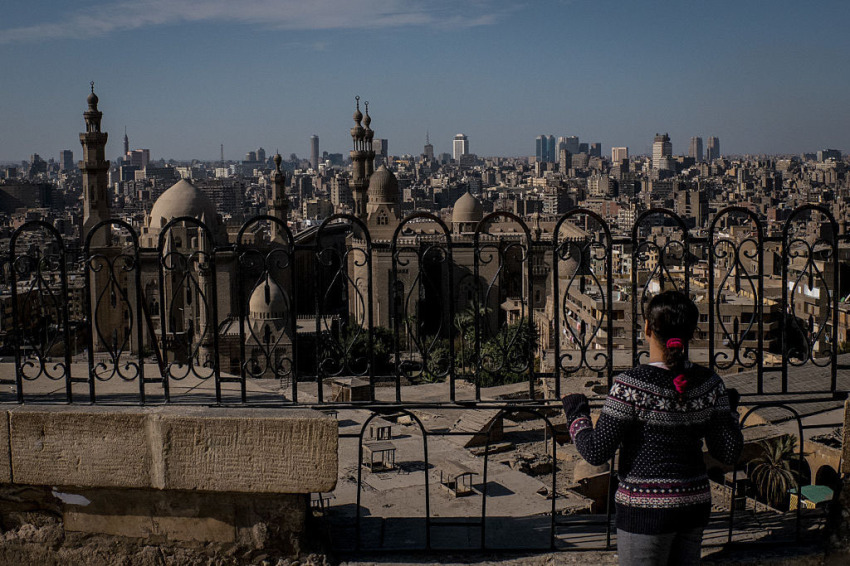Secret faith, many struggles: An interview with an Egyptian Christian

An Egyptian lawyer who was born and raised in a Muslim family has opened up about his path to Christ and detailed the challenges that Christian converts face in Egypt.
Mussa (real name held for security reasons) discussed his life experiences in a recent interview with Global Christian Relief, a persecution watchdog organization that supports the persecuted Church worldwide.
Although he was raised in a Muslim family, many of his closest friends growing up were Christians, which made him interested in what they believed.
He said he began reading the Bible, asking God to reveal His truth to him and became a Christian. Mussa shared the Gospel with his wife, who also became a believer. But no one outside of his immediate family knows they are Christians, and by all external appearances, Mussa is Muslim.
Below is an edited transcript of Global Christian Relief's interview with Mussa:
Global Christian Relief: Could you tell us more about the difficulties and challenges ex-Muslims face in Egypt?
Mussa: The problems that converts from Islam face in Egypt come from both the state and from society. If any person chooses a belief that is contrary to Islam, then this person is considered an infidel and an apostate from society, and he is largely disgraced and rejected. This applies to those who becomes Christians.
They experience a great deal of rejection from society, and their lives could be at risk. Although Articles 40-46 of the Egyptian Constitution guarantee freedom of belief, unfortunately, this is not practically applied.
We are supposed to live in a civil state, where we are supposed to be subject to governmental law and not Islamic law. While the state doesn't formally punish those who leave Islam, ex-Muslims are pursued by security forces and charged with defaming religion.
When a Muslim changes his religion, he is accused of blasphemy, although anyone who wants to change his religion should be free to do so, as written in the Egyptian Constitution.
As soon as security forces learn that a Muslim has changed his religion, a security file is prepared for him, and he is pursued as if he is a criminal.
We should have the right to personal faith, yet I cannot make my faith known. Should my beliefs make me a criminal? Unfortunately, this happens to almost all converts and continues for years on end.
In addition to being rejected by society, converts often lose their jobs. They can lose everything, and they are threatened with death. The person's family and friends often treat them very poorly. It is very easy for anyone to convert from Christianity to Islam in Egypt, and the procedure for documenting the conversion is a simple visit to state departments. However, it is impossible to officially convert from Islam to Christianity.
GCR: Do people who convert to Christianity face difficulties and challenges when they decide to get married?
M: Marriage is one of the main difficulties for those who convert. A new Christian wants to marry another Christian, but many Coptic Christian families are hesitant or refuse to allow their children to marry into Muslim families. These societal problems are major issues for those who follow Jesus.
There was even a case of a priest who was sent to a labor prison for marrying a Muslim-registered Christian convert to a Christian. It is very difficult for believers of Muslim backgrounds to meet each other to get married since so many live in secret.
GCR: Do the children of Christian converts also face problems and challenges?
M: Children of converts go through great difficulty. They are treated as Muslims at school, but at home, they are raised Christian. This leads to psychological crises for these children.
I took my children to a counselor for these matters. They can feel pressure because if a child says at school that his family is Christian, his family could face problems. Children are unable to understand that in school, he must keep his Christian faith secret and that he must follow another faith and study Islam, which is a basic subject taught in schools. So, he studies Islamic doctrine at school, but he is a Christian at home. These are difficult pressures to put on a child.
GCR: Is it possible for newly converted Christians to preach in Egypt?
M: Egypt has signed international human rights conventions that allow freedom of belief and the right to proselytize, but it is still not really allowed.
I remember a young Christian man, Mina Abdel Sayed. He was a delivery man and had a Bible in his personal handbag. National Security arrested him and charged him with proselytizing. He was imprisoned and tortured to death. On the other hand, all are free to preach Islam, and there are many organizations that do so, even at a government-level.
GCR: When will those who have converted to Christianity get their rights, in your opinion?
M: I believe that converts will obtain their rights when the constitution is implemented and when acceptance is taught to young children. That is when we'll see equal rights for all, without discrimination. Then, religion will be seen as a private freedom, and we will have the right to choose our beliefs.
Girgis is a writer for Global Christian Relief (GCR), America’s leading watchdog organization focused on the plight of persecuted Christians worldwide. In addition to equipping the Western church to advocate and pray for the persecuted, GCR works in the most restrictive countries to protect and encourage Christians threatened by faith-based discrimination and violence.



























